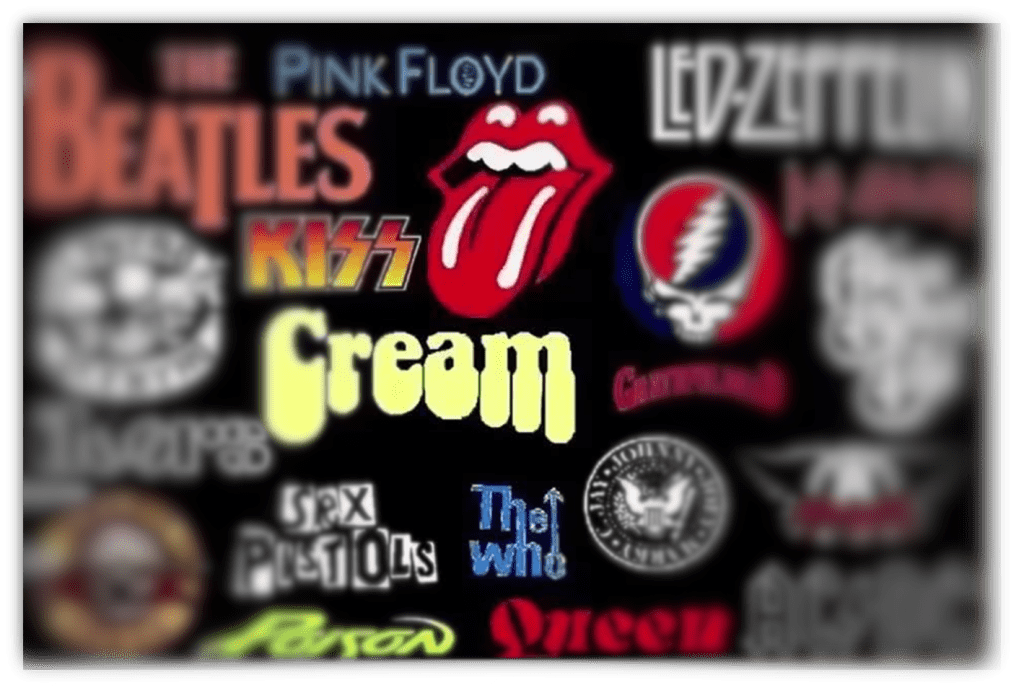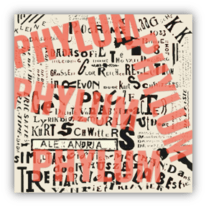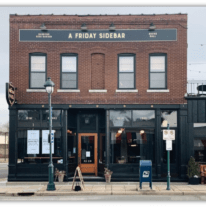One day when I was around 10 years old, somebody in the house turned on a radio.
The sound of ocean waves could be heard.
As it continued for a long period of time, I wondered what it was about. It was explained to me that this particular station, WCFL-AM, was switching from Top 40 to something else.

The waves were meant to usher in the new format.
I left the radio on and waited with great anticipation for the waves to end and for whatever would be coming next. Finally, after a couple of hours – which seemed more like days, the waves stopped. I could feel the excitement building as I wondered what the first song would be. A deep voiced announcer came on and said something:
And then “Song Sung Blue” by Neil Diamond began playing.

And there it was. The new format turned out to be Easy Listening.
If I heard the station again after that day, I have no recollection of it. But I would never forget those waves of change.
Being that the business of radio in the U.S. can be a very competitive and volatile one, it is not unusual for stations, at least in our neck of the woods, to go in a different programming direction for various reasons.

Usually because of low ratings, shifting trends, being sold, or all of the above, sometimes without warning.
I remember once in the early 80s turning on a soft rock station, expecting to hear something akin to “Help Me” by Joni Mitchell, or “The Night They Drove Old Dixie Down” by Joan Baez. But to my surprise “(Oh) Pretty Woman” by Van Halen came blasting out of the stereo.
Or the time in the 90s: when an all-70s station which my friends and I loved suddenly dropped its format and started playing more current adult contemporary hits on a loop.

Someone who claimed to be “Bill” would occasionally come on and say that he borrowed a bunch of CDs and was playing his favorite songs. It seemed to be an obvious placeholder for something else that was coming.
A few months later, “Bill” was gone.

Replaced by a Spanish station.
Around 1992, Q101, which had been “adult top 40” announced that it was switching to a new
alternative rock format. In case listeners didn’t understand what that meant, they made it clear that
artists they had previously played, such as Cher, would not be given the access code to this new format.

I could not have known it at the time, but that station would profoundly affect my musical tastes
throughout the 90s and beyond, from that day forward
More currently, up in 2018: “The Loop,” a station that had played hard rock for nearly 40 years, was sold to a Christian broadcasting company.

They made it a point to play “Highway to Hell” as their last song before signing off for good.
Picturing in my head the countless stoners from my high school days sporting their black Loop t-shirts, I felt quite melancholic about it, even though I had stopped listening quite awhile back.
Similar to the aforementioned ocean waves, some stations would find creative ways to mark the transition from one format to another.
In 2001, a classical station in town was sold. Before the new owners unveiled what the format would be, for about a month they would feature a single artist each day covering multiple genres.

Artists as diverse as Madonna, Dave Matthews, Weird Al, The Beatles, Sinatra, and Garth Brooks got a whole day of airplay by themselves.
There were also all-day themes such as boy bands, TV theme songs, and Motown.
If you didn’t like who or what was featured one day, something completely different could be heard the next. I remember my friend Ann remarking that she wished that this actually was the new format and would miss it when it was gone. After hearing Steely Dan for an entire day or pretty much every banger of a spy TV theme playing back-to-back, I felt similar.

Eventually, “97.1 – The Drive” was born, playing classic rock from the late 60s/70s, as well as softer hits and singer-songwriter fare from the same era.
They are still alive and kicking, though the format has been tweaked over time.
Though the vast majority of format changes have come and gone over the years without too many long-term reverberations, there was one that led to an event that would go down in infamy.
WDAI, an AOR (album-oriented rock) station in Chicago, decided to switch its format to disco at the beginning of 1979. In the process, the host of the morning show, Steve Dahl, was fired.
He had been there for about a year, and his brand of edgy radio that he was developing is generally considered to have paved the way for generations of shock jocks. Within a few months, Dahl was hired at another station in town, and in an act of revenge, he used every opportunity he could to mock and wish ill upon his old station and its disco format.

He would routinely start to play a disco record and at some point, play a sound effect of an explosion, effectively “blowing up” the record.
He began taking requests for disco songs he could blow up on the air. I was not a fan of Steve Dahl and did not listen to his show, but I was aware of what he was doing, as it received a great deal of media attention.
One July evening that year, I was hoping to catch the second game of a double header featuring my beloved White Sox.

When I turned on the TV, instead of a baseball game being played, I was shocked to see what can only be described as a scene of utter chaos and destruction.
Unbeknownst to me, in an ill-advised move, the team had hosted “Disco Demolition Night”. Anyone who brought in disco records to the park got in for 98 cents. After the first game, Dahl and his cohorts blew up a large crate of the records on the field, ripping a hole into the outfield.
What I saw was the aftermath.

The field was completely trashed, littered with busted up records.
Mobs of white dudes were running around all over the park and the field, setting records on fire and tearing out seats, with some even climbing the foul poles. The second game was postponed, and eventually forfeited, and I turned off the tv in disgust.
Much has been written about Disco Demolition Night over the years. It is often cited as the event that brought an end to disco, even though disco remained in the charts for quite some time after it, albeit not as omnipresent.

And WDAI stayed with its disco format for nearly a year afterward.
Many have also opined that disco did not actually die and just eventually morphed into house music. For his part, Dahl’s popularity increased exponentially after the incident. He continued to work in Chicago radio at various stations for decades.
On a broader scale, Disco Demolition Night is often referred to in social commentary and think pieces as the culmination of the backlash toward disco that had been growing nationally, particularly amongst rock and roll fans, and on a darker level, a blatant representation of racism, sexism and homophobia that was behind it.
I don’t believe everyone who disliked disco did so because of those reasons. There were plenty of people that were just tired of its utter reign at that point.

Its dominance spilled over to established rock acts like Kiss, The Rolling Stones, and Rod Stewart, all of whom recorded disco songs.
This further raised the ire of rock fans who felt that disco was taking over everything, including at the local level, where in many places, the trend was for clubs and bars to eschew live music in favor of booking a disco deejay.
That said, I don’t think it can be rationally concluded that bigotry was not also in the picture. How else can one explain those who went beyond dislike into an unprecedented burning hatred for a style of music that led to an all-out riot featuring angry young white males?

Just looking at what groups of people disco was primarily associated with, and who was doing the rioting, the optics are not good.
As a 13-year-old at the time, not much of this was apparent to me. I was just a White Sox fan who was angry that these idiots caused my team to forfeit a game, something that has only happened five times in MLB history. (Cleveland fans, feel free to change the subject to Ten-cent Beer Night.)
These days, I no longer listen to the radio as much as I once did, turning instead to streaming playlists, podcasts, and such.

Most stations play the same songs I have been hearing for years and I just have no patience for it.
And I aged out of Top 40 quite some time ago, though my teen daughter has done her best to keep me somewhat literate in current music.
Still, radio stations have been a fundamental part of my love of music.
As much as my current listening experience is tailored to my exact musical tastes and whims, nothing will capture the imagination quite like hearing a great song randomly popping out of my car stereo, or the sound of ocean waves from a transistor radio, ushering in some mysterious new thing.
In radio world, change is constant and not much tends to last, but that magic will never fade.

Let the author know that you liked their article with a “Green Thumb” Upvote!









Great column, rb. I was still living in Chicago at the time of Disco Demolition Night (though not for much longer … by summer’s end, our family was in South Bend, Ind.), and I can’t disagree with a word of what you’ve written. I had a passionate argument once with a co-worker who maintained the whole melee was just about the music. Nope, nope, nope.
I also remember the WCFL switchover, as well as the ones for WEFM and WMET. I thought it was super odd that WDHF switched call letters to WMET but kept the same format, only to jettison it a few years later but keep the WMET call letters.
I imagine I might have listened to radio longer had I stayed in Chicago (simply because of the larger number of stations to choose from) but who knows? I dropped out of listening in Raleigh-Durham a good decade ago and don’t miss it. I do pick up some stations on streaming from time to time and enjoy that — it reminds me of being in Pennsylvania as a kid and picking up WLS on summer nights.
I was hoping you would toss out a few more Chicago stations and you did not disappoint with references to The Mighty MET and WE-FM.
Nice job, rb! My two favorite radio stations of all time have gone through similar changes. WBLM in Lewiston, Maine is now playing 70s classic rock, which means they’re playing exactly the same music they did when I was a fan in the 70s.
WBCN in Boston was the best rock station of all time (with apologies to New York’s WNEW). It switched to adult contemporary in 1991 and changed it called letters to WWBX in 2009. There’s more to it than that, of course, and the station’s early history warranted a documentary called “WBCN and The American Revolution.” It’s worth watching if you’re at all interested in radio, business, and politics.
The influence of WBCN cannot be overstated.
You don’t have to be from Boston to appreciate the passion described in the documentary. Highly recommended.
As you lament about losing touch with pop radio and your daughter trying to keep you in touch, I love seeing Joe Jonas advertising all over your article!!
Someone really needs to do one of these for each city!
Interesting read for me as our radio landscape is very different. Stations here do rebrand but mostly through mergers and takeovers but the songs largely remain the same. Switching genre or format doesn’t really happen. Being on one time zone gives us a mix of national and local stations to add an extra point of difference here. The most well known change here was Radio 1 in the early 90s which had slipped into middle age with DJs that had been there since the 70s and hadn’t moved with the times. They were swept away and replaced with younger talent chasing a younger audience. It led to a lot of bad feeling but I think it was necessary. We already had Radio 2 to age into and to complement Radio 1.
One other big but simple difference is in station naming. I was always fascinated by all the acronyms which we don’t get here. I’ll admit, I don’t know my WDAI from WCFL from WMBX. To an outsider it’s a confusing jumble of letters.
If I remember correctly, stations east of the Mississippi River start with W. Those on the west side start with K. Canadian stations start with C.
The remaining letters are up to the station, as long as no other station is using them, and they submit an application to the Federal Communications Commission. Some of them spell words, like WINK or WAVE. Others are abbreviations. For instance, WPLN is the National Public Radio station here in Nashville and they started as part of the library system. PLN stands for “Public Library Nashville.”
Yep. In Chicago, WLS once stood for World’s Largest Store but I can’t remember whether it was Montgomery Ward or Sears, Roebuck. WGN was World’s Greatest Newspaper (the Tribune had owned it). And WCFL was the Voice of Labor, the Chicago Federation of Labor, to be exact. WJPC was owned by the Johnson Publishing Co. And there’s probably one or two I’m forgetting…
WLS was Sears Roebuck
Here are a few other Chicago stations that are acronyms
WBBM- We Broadcast Better Music (ironically, their AM frequency has been an all-news station for many years)
WVON- Voice Of the Negro (and eventually Voice of the Nation)
WMBI- Moody Bible Institute
A lot of them are related to university names. Like WNYU is New York University, WSHU is Seton Hall, WLIU is Long Island University, WUSB is the NY State University at Stony Brook.
I was living in OKC in 1991 or 1992 when I remember getting about 24 hours of “Ocean 99” during a format change where you only hear ocean waves and an occasional recorded announcement (in an easy going voice) of “Oceaaaaaan 99”. The format ended up being a “Magic” Adult Contempary station.
Speaking of 10-cent Beer Night, I was a kid in Dallas but “my” Texas Rangers got a win out of it when the umpires made Cleveland forfeit the game.
And this came up a couple of months ago, but in Austin, I realized a few months ago we are priviledged to have both a BOB FM and a JACK FM. At the time, I mentioned (in a late comment), I did not know the difference. I have been listening to them a bit more in the car now. I think BOB is a little more 80’s and JACK is a little more 90’s.
I was hoping someone would have thoughts on 10-cent beer night. Glad your team got a win out of it. The Detroit Tigers were the beneficiaries of the forfeited game from Disco Demolition.
We had a JACK FM for a hot minute here in Chicago.
I always thought disco never really went anywhere, it just turned into 80s dance pop like Madonna. It’s not like you can use the same set of sounds in the same way forever and expect people to keep dancing to it without getting bored.